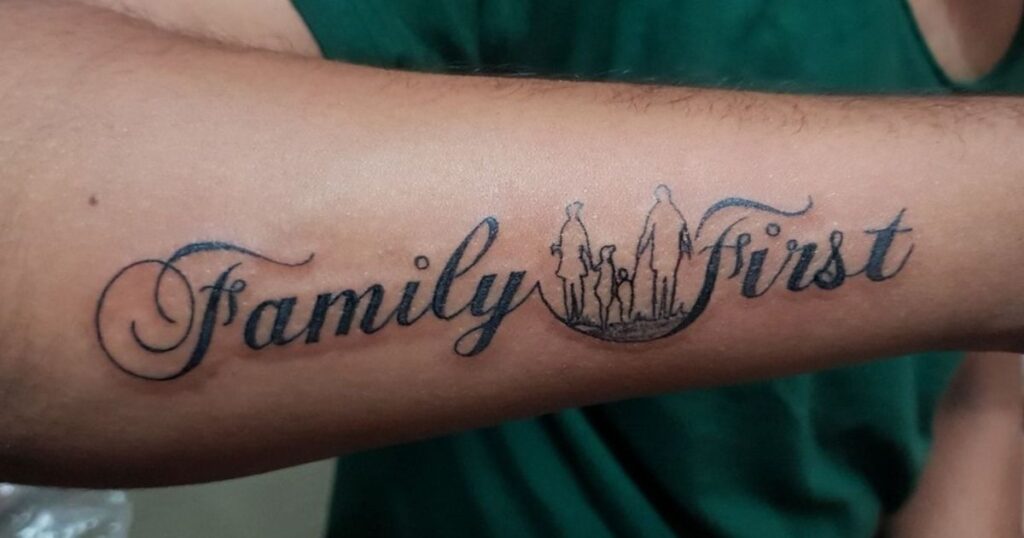Imagine a life where family always comes first, a life filled with love, warmth, and unbreakable bonds. Being family-oriented means exactly that. It’s about caring deeply for your loved ones’ happiness and well-being. Those who are family-oriented choose to spend meaningful time together, creating memories and strong connections that last a lifetime. Their homes become sanctuaries of support, safety, and togetherness.
Living a truly family-oriented life goes beyond just the present. It means honoring traditions, embracing heritage, and nurturing ties across generations. Whether it’s through family reunions or simple daily moments, this mindset keeps family at the heart of every decision. In short, being family-oriented means making your family your greatest priority, always and forever.
Other Ways to Say “Family-Oriented”
Being family-oriented means putting your loved ones at the center of your life. People with this mindset prioritize family well-being, nurturing close relationships, and creating a warm, supportive home environment. They focus on quality time, shared values, and making decisions that strengthen family bonds for lasting unity and happiness.
1. Family-Centric
Example: “Their family-centric weekends always include activities that bring everyone together.”
Meaning: This term highlights putting family at the heart of priorities and decisions, showing a lifestyle where family comes first.
Usage: Use it to describe people, lifestyles, or services that prioritize family well-being and connection.
2. Home-Focused
Example: “She leads a home-focused life, spending most evenings creating a cozy space for her loved ones.”
Meaning: Emphasizes concentrating on the home environment and making it a center of comfort and care.
Usage: Great for talking about people or policies that value the home as a primary place of nurturing and safety.
3. Kinship-Driven
Example: “Their kinship-driven traditions celebrate extended family bonds across generations.”
Meaning: This phrase stresses the importance of family ties and blood relationships in shaping values and actions.
Usage: Suitable for describing communities or families where ancestral and familial connections guide decisions and customs.
4. Family-First

Example: “A family-first mindset means they prioritize quality time over work obligations.”
Meaning: Highlights prioritizing family needs above other concerns, often involving sacrifices for loved ones.
Usage: Useful for describing people, companies, or policies that put family interests at the forefront.
5. Child-Centered
Example: “Their child-centered approach to parenting focuses on the individual needs of each child.”
Meaning: Focuses on placing children’s well-being, growth, and development at the core of decisions and activities.
Usage: Ideal for parenting styles, educational methods, or family practices that prioritize children’s needs.
6. Domestic-Oriented
Example: “A domestic-oriented lifestyle emphasizes managing home life and household tasks efficiently.”
Meaning: Focuses on activities, values, or roles revolving around the household and home management.
Usage: Good for describing family roles, policies, or lifestyles focused on home care and maintenance.
7. Family-Bonding Advocate
Example: “She is a family-bonding advocate who organizes regular get-togethers to strengthen ties.”
Meaning: Someone who actively promotes activities or values that enhance family connections and togetherness.
Usage: Perfect for describing people or organizations committed to nurturing family relationships.
Read More: 12 Other Ways to Say “Welcoming Environment”
8. Unity-Embracing
Example: “Their unity-embracing philosophy helps resolve conflicts and bring family members closer.”
Meaning: Emphasizes fostering harmony and togetherness within families or communities.
Usage: Useful when describing approaches or attitudes that value collective peace and cooperation.
9. Nest-Nurturing
Example: “She takes a nest-nurturing approach, creating a warm, safe space for her children to grow.”
Meaning: Focuses on making the home a nurturing and protective environment, like a bird tending its nest.
Usage: Great for describing parenting styles or home environments that emphasize care and emotional support.
10. Relationally-Rich
Example: “Their relationally-rich family life is full of meaningful conversations and shared experiences.”
Meaning: Highlights deep, quality relationships within the family or community.
Usage: Use to describe families or groups that value emotional closeness and strong interpersonal bonds.
11. Communally-Focused
Example: “A communally-focused neighborhood encourages families to support each other.”
Meaning: Stresses the importance of community involvement and collective care alongside family life.
Usage: Suitable for describing environments where families engage actively with their wider community.
12. Heritage-Honoring
Example: “Their heritage-honoring traditions include storytelling and celebrating ancestral customs.”
Meaning: Emphasizes respecting and preserving cultural and family history through traditions and practices.
Usage: Ideal for families or groups that actively maintain and celebrate their cultural roots.
When to Use Different Expressions for “Family-Oriented”

Choosing the right way to say family-oriented depends on the context and what aspect of family life you want to highlight. For example, use child-centered when focusing on children’s needs or heritage-honoring to emphasize respect for family traditions. Picking the right term helps convey your message clearly and meaningfully.
For Describing Lifestyles and Personal Priorities
When describing lifestyles or personal priorities, the term family-oriented fits perfectly. It highlights how someone places family at the center of their daily choices and values. People who are family-oriented often prioritize spending quality time with loved ones, nurturing strong family bonds, and creating a warm, supportive home environment. Whether referring to someone’s parenting style, hobbies, or general outlook, family-oriented expresses a deep commitment to family well-being and unity in everyday life.
In the Context of Home and Environment
When talking about the home and environment, family-oriented describes a space designed to foster comfort, safety, and connection among family members. A family-oriented home often features nurturing decor, cozy gathering areas, and thoughtful arrangements that support togetherness and warmth. This term also reflects how the domestic setting encourages positive family dynamics and a loving atmosphere where everyone feels secure and valued, making it essential for promoting overall family well-being.
Highlighting Children’s Well-being and Development
Focusing on children’s growth is a key part of being family-oriented. A family-oriented approach prioritizes child-centered activities, educational choices, and parenting styles that nurture development and emotional health. This mindset supports creating a safe, loving environment where children can thrive, feel valued, and build strong bonds with family members, ensuring their well-being is at the heart of family decisions and daily life.
Emphasizing Family Connections and Heritage
A family-oriented lifestyle deeply values family connections and the preservation of cultural heritage. It embraces traditions, family stories, and ancestral culture, creating a rich, relationally-rich environment. By honoring family history and encouraging intergenerational bonds, this approach strengthens unity and fosters a sense of belonging that keeps family ties strong across generations.
Conclusion
Being family-oriented means choosing your family above all else. It means making time for loved ones and putting their needs first. When you live a family-oriented life, you build strong bonds that last. You create a warm, safe, and loving home where everyone feels supported. This kind of life brings happiness and comfort to everyone in the family.
A family-oriented person values togetherness and family traditions. They understand how important family connections and heritage are. Being family-oriented helps you focus on what really matters, your family’s well-being and happiness. No matter how busy life gets, staying family-oriented keeps your home full of love and care. Remember, a family-oriented lifestyle makes your family stronger every day.

Grammerroot is your trusted source for mastering English grammar and language skills. From simple rules to advanced tips, we help learners build strong foundations through easy-to-understand content. Learn smart, learn right — only at Grammer Root.




